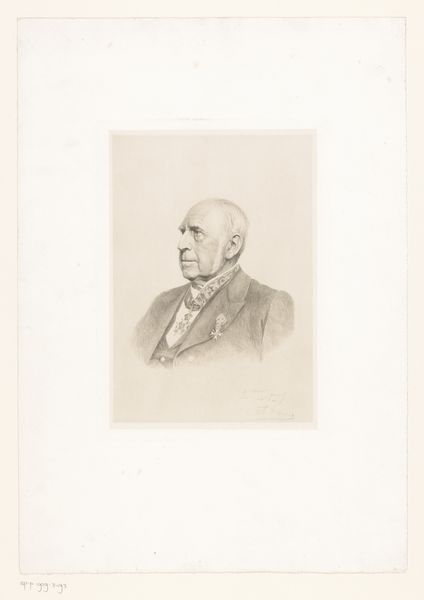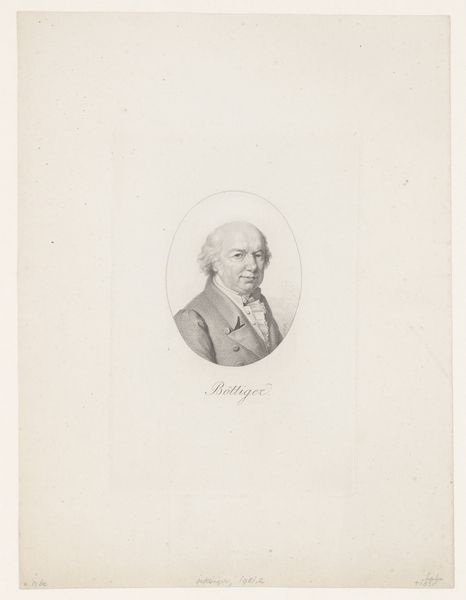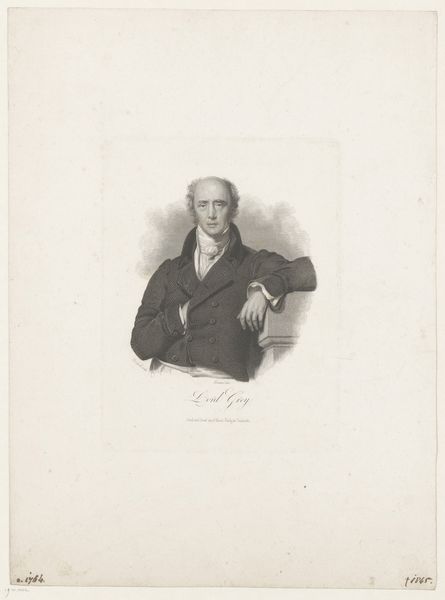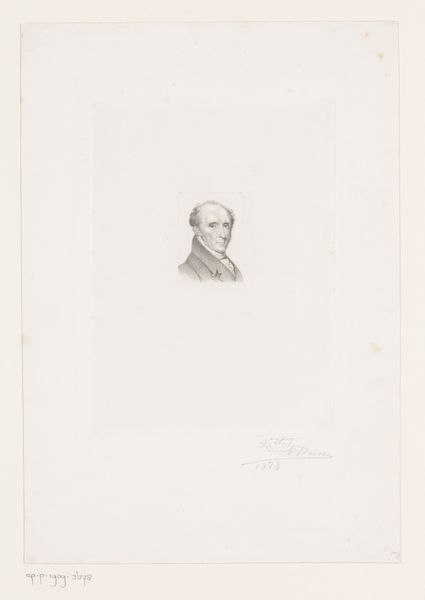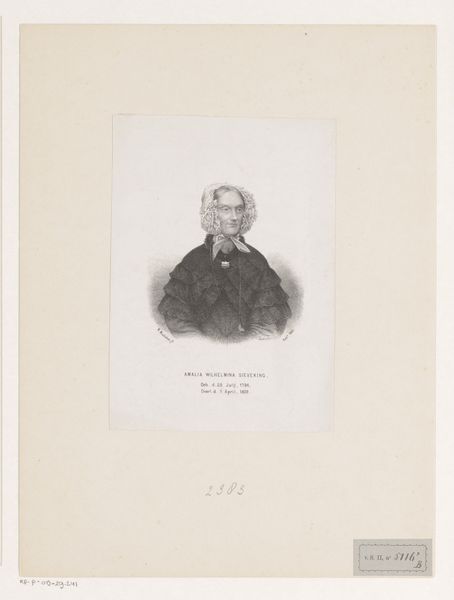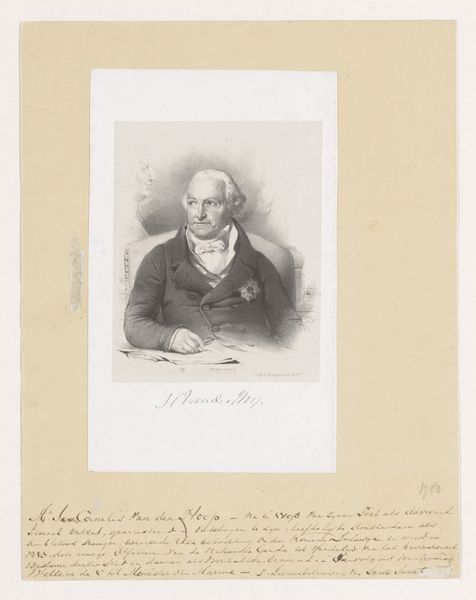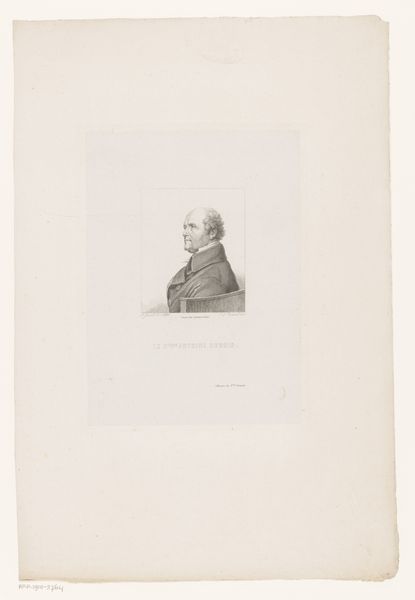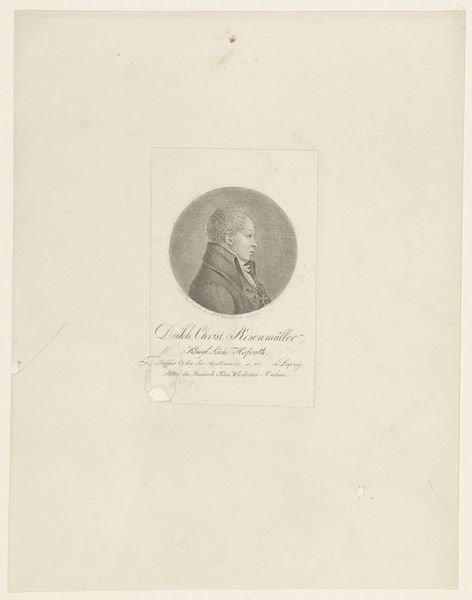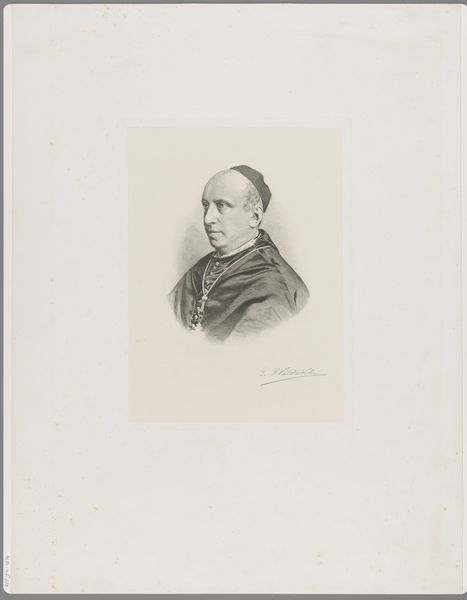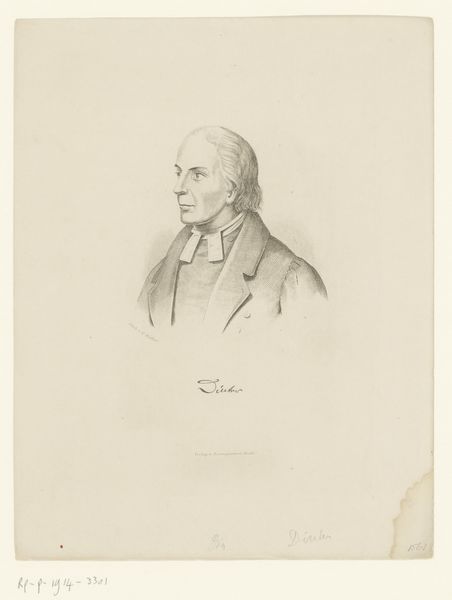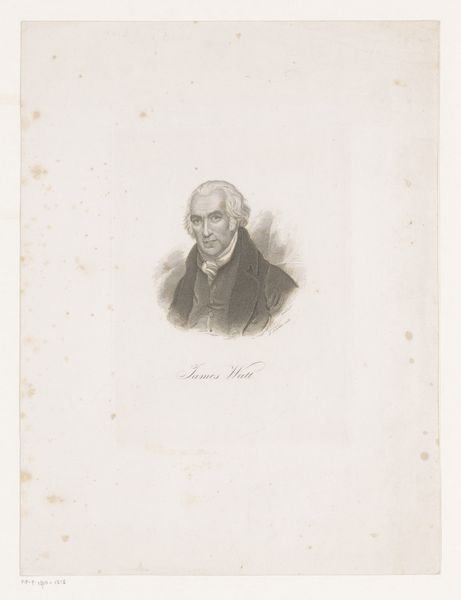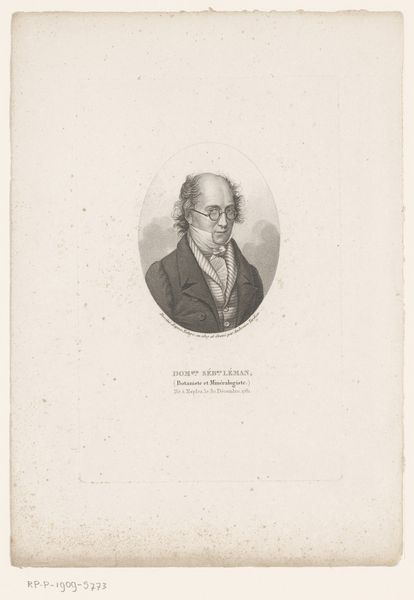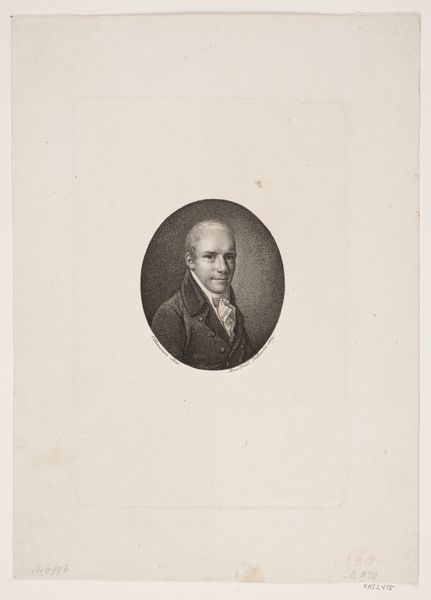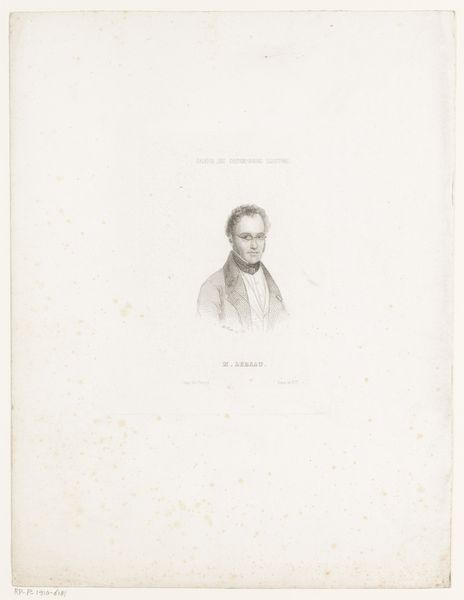
print, engraving
#
portrait
#
16_19th-century
# print
#
old engraving style
#
academic-art
#
engraving
#
realism
Dimensions: height 180 mm, width 148 mm
Copyright: Rijks Museum: Open Domain
This is a portrait of Joseph Souberbielle made by Charles Louis Bazin, using engraving. Engraving is a printmaking technique which involves incising an image onto a metal plate, and then using that as a matrix to print many identical images on paper. The engraver would have used a tool called a burin to cut lines into the plate. Ink is then applied to the plate and carefully wiped away from the surface, remaining only in the incised lines. The plate is then pressed against a sheet of paper, transferring the ink and creating a print. Engraving requires great skill and precision, as the quality of the final print depends heavily on the craftsmanship of the engraver. The sharp lines and fine details achieved through this technique lend themselves well to portraiture, capturing the likeness and character of the subject with remarkable clarity. Also, the ability to reproduce images through printmaking democratized art, making it more accessible to a wider audience beyond the elite circles who could afford original paintings. Considering the labor and materials involved helps us understand the social and cultural value placed on images and representation during this period, challenging any divide between art and craft.
Comments
No comments
Be the first to comment and join the conversation on the ultimate creative platform.
